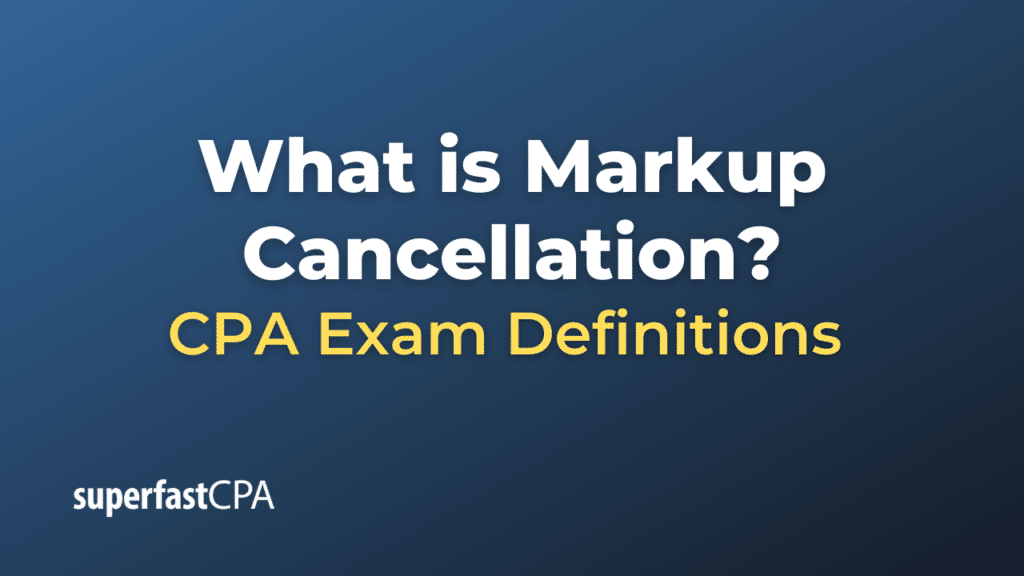Markup Cancellation
Markup cancellation is a term primarily used in the field of finance and accounting. It refers to the process of reducing or eliminating the markup price on a product, asset, or service.
Businesses use markup cancellation strategies in a variety of situations. Here are a few examples:
- Sales and Discounts: A business might cancel the markup on certain products to sell them at a discount. This is common in retail, where stores often have sales to clear out inventory at the end of a season.
- Loss Leaders: A business might sell certain products at a loss, or with the markup cancelled, to attract customers who will also buy other, higher-margin items. This strategy is often used in supermarkets, where certain items might be sold at a very low price to draw customers in.
- Competitive Pricing: If a business is facing stiff competition, it might need to reduce its prices to stay competitive. This could involve cancelling some or all of the markup on its products.
- Customer Retention: In some cases, a business might cancel the markup for certain customers to keep their business. For instance, a software company might offer a big discount to a longstanding customer who is considering switching to a competitor.
It’s important to note that while markup cancellation can be an effective strategy in certain situations, it needs to be used carefully. If a business cancels too much markup and doesn’t make enough profit to cover its costs, it could end up losing money.
Example of Markup Cancellation
Let’s say we have a clothing retailer, which we’ll call “Trendy Threads.” They sell a line of summer dresses that were initially marked up by 60% on the cost price. However, as the summer season comes to an end, they still have a significant number of these dresses in stock.
In order to clear this stock quickly and make room for their autumn collection, Trendy Threads decides to hold an end-of-season sale. They decide to eliminate the 60% markup on these summer dresses and reduce the selling price down to the original cost price. This strategy is an example of a markup cancellation.
So, if a summer dress originally cost Trendy Threads $30 (the cost price) and was being sold for $48 after a 60% markup, the sale price after the markup cancellation would be $30.
While Trendy Threads won’t make a profit on these dresses, the markup cancellation helps them to quickly sell the remaining inventory, freeing up space for new collections and recovering the cost spent on acquiring the dresses. Furthermore, the sale could also attract customers to the store who might end up purchasing other items, generating additional revenue.













